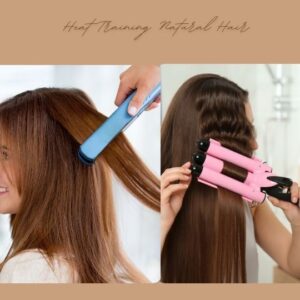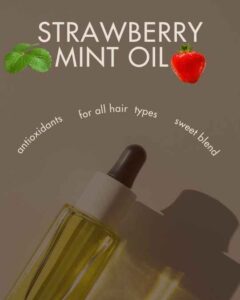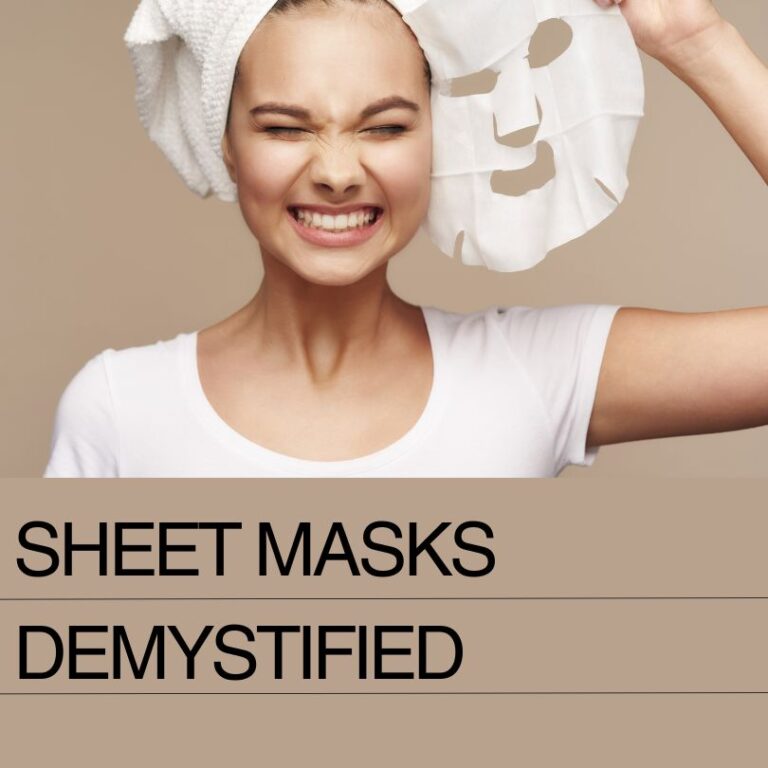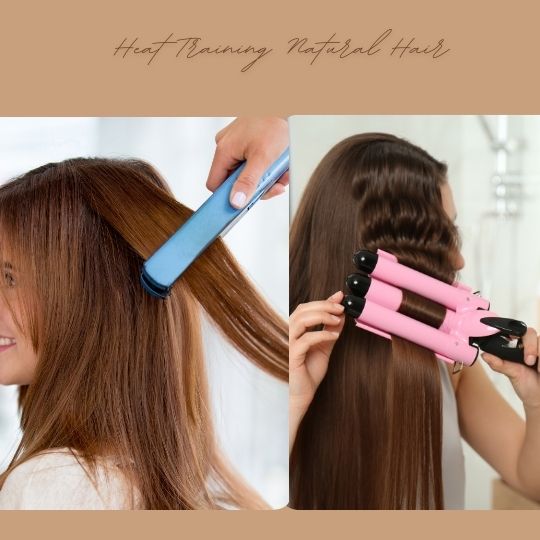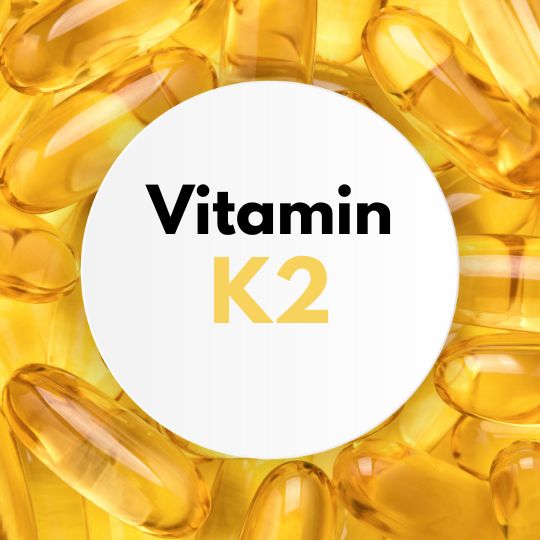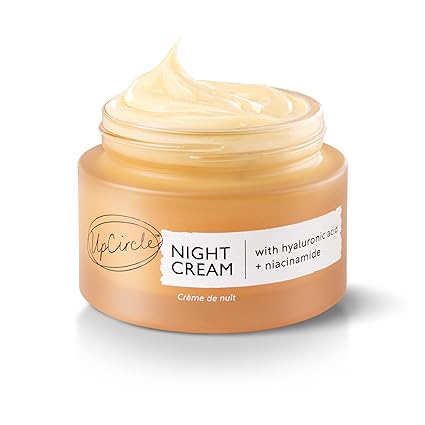In this myth, the belief is that if something has been widely spoken about or passed down through word of mouth, it must be true. People often have faith in information from their social circle or community. This idea is popular in various societies and can be connected with legends and truths on the whole.
The fact that a story or information is very widespread does not make it true. That is how many rumors, urban legends and myths are spread. Such information should be received with caution and traced to reliable sources or evidence before being accepted as true. Sometimes there are instances when it is easier to accept information as true than try researching and verify, especially if the said piece of information seems reasonable or harmless.
These are some beauty myths and facts that many people buy it. That is very common mistake however to believe in it because sometimes may work for you but sometimes apart from that would instead harm you.
Table of Contents
Toggle1.Myth: Daily Deep Exfoliation Clears Acne
So many people believe that through the removal of dead skin cells and other types of impurities by deep exfoliation, they will be able to eliminate acne from their face. This bias originates from the notion that acne is mostly resulting from dirty or blocked skin; hence, if you keep your skin cleansed regularly and thoroughly then this will eliminate it.
Fact: Daily Deep Exfoliation Can Worsen Acne
On the one hand, exfoliation can make it possible to remove dead skin cells and cleanse pores of debris; on the other – being done too excessively, this cosmetic procedure may result in promoting acne. Over-exfoliation can deprive skin of its natural lubricants, resulting in dryness and irritation or inflammation. Over-exfoliation can cause damage to the skin’s protective barrier, often making it more susceptible to acne causing bacteria and environmental irritants. Daily deep exfoliation can strip the skin from all of its oil, and in an attempt to compensate for its loss, it may actually overproduce this substance leading to more breakouts. Aggressive exfoliation can also scatter the bacteria that cause acne across onthe face.
2-3 times a week, depending on your skin type use gentle exfoliators to prevent built up of dead skins. This prevents acne without over burdening the skin.
READ MORE: ELEMIS Superfood Facial Wash Review: Revitalizing Daily Prebiotic Gel Wash
2.Myth: Toothpaste Can Cure Acne
The myth is that applying toothpaste to a pimple can dry it out and make it disappear faster. This belief likely comes from the fact that toothpaste often contains ingredients like baking soda, hydrogen peroxide, alcohol, and menthol, which can give a drying effect.
Fact: Toothpaste Can Irritate Skin and Worsen Acne
Toothpaste may temporarily dry out a pimple, it’s not an effective acne treatment and can cause several skin issues. Many toothpaste formulas contain ingredients that are too harsh for the skin, leading to irritation, redness, and sometimes chemical burns. Toothpaste is formulated for teeth, not skin. Its pH is not suited for skin health and can disrupt the skin’s natural barrier. The irritation caused by toothpaste can lead to increased inflammation and potentially worsen acne. Acne should be treated with products specifically formulated for skin. Ingredients like salicylic acid, benzoyl peroxide, and retinoids are commonly used in acne treatments.
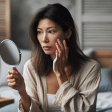
3.Myth: You Don’t Need Sunscreen on Cloudy Days
Many people think that if the sun is not visible or it’s a cloudy day, they are not at risk of UV radiation, and therefore, sunscreen is not needed. The warmth and brightness of the sun are less apparent on cloudy days, leading to the assumption that the harmful UV rays are also diminished.
Fact: UV Rays Penetrate Clouds
Up to 80% of the sun’s harmful UV rays can penetrate through clouds. This means you are still exposed to UV radiation that can cause skin damage, even on overcast days. There are two types of UV rays that can harm your skin – UVA and UVB. UVA rays, which cause aging and long-term skin damage, are present throughout the year and can penetrate glass and clouds. Regular use of sunscreen, even on cloudy days, helps protect against cumulative skin damage, premature aging, and skin cancer. UV rays can be reflected by surfaces like water, snow, and even concrete, increasing exposure.
4.Myth: Wax is Better than shaving
A common myth is that shaving causes hair to grow back thicker, darker, or coarser. This misconception arises because shaved hair has a blunt tip, which can feel stubbly or look thicker as it grows out. Another common belief is that waxing is inherently better than shaving for hair removal. Waxing removes hair from the root, which can result in smoother skin for a longer period compared to shaving.
Fact: Both Have Advantages and Disadvantages
Shaving cuts the hair at the surface of the skin and does not affect the hair follicle itself, where growth and texture are determined. The hair’s color, thickness, and rate of growth remain unchanged. The blunt tip of the shaved hair may create a perception of thickness as it grows out, but this is only temporary.
Since waxing removes hair from the root, it tends to take longer for the hair to grow back. Over time, repeated waxing might weaken the hair follicle, potentially leading to less hair growth. Waxing can be painful, may cause irritation or ingrown hairs, and is not suitable for everyone. People with sensitive skin or certain skin conditions might find waxing too harsh.
In conclusion, shaving does not cause hair to grow back thicker, and while waxing offers longer-lasting smoothness, it’s not universally better than shaving. The choice between shaving and waxing depends on personal preference, skin sensitivity, and the desired outcome.
5.Myth: More Expensive Beauty Products Are Always Better
The myth is that the more expensive a beauty product is, the better its quality, effectiveness, or luxury. This belief often comes from the association of high cost with premium ingredients, advanced formulations, or luxury branding.
Fact: Price Doesn’t Guarantee Quality
The effectiveness of a beauty product depends on its ingredients, formulation, and suitability for your skin type, not its price tag. A significant portion of the cost of high-end beauty products often goes into marketing, packaging, and branding. These factors do not necessarily reflect the quality or effectiveness of the product. Everyone’s skin is different, and a product that works well for one person may not be effective for another, regardless of its cost.

vista.com
The key is to look for products with proven ingredients that are suitable for your skin type and concerns. Many affordable products contain the same active ingredients as their more expensive counterparts. Doing research, reading reviews, and sometimes trial and error are necessary to find the right products, whether they are expensive or budget-friendly.
6.Myth: Pores Open and Close
The common perception is that oily skin automatically leads to enlarged pores and acne. This myth likely stems from the fact that excess oil can contribute to clogged pores, which might become more visible and potentially lead to acne.
Fact: Oily Skin Does Not Always Cause Large Pores and Acne
People with oily skin may have a higher likelihood of visible pores and acne, but it’s not a certainty for everyone. Skin characteristics vary greatly among individuals. Pore size is influenced by several factors, including genetics, age, and skin care habits. While oily skin can make pores appear larger due to increased sebum production, not everyone with oily skin will have noticeably large pores. Acne is caused by a combination of factors including oil production, bacteria, hormonal changes, and dead skin cells. Oily skin can be a contributing factor, but it’s not the sole cause of acne.
A proper skincare routine tailored for oily skin can help manage oil production and reduce the visibility of pores without exacerbating the situation. Specially using non-comedogenic products can help prevent pores from becoming clogged.
READ MORE: DHC Deep Cleansing Oil: Your Ultimate Makeup Remover and Facial Cleanser
7.Myth: You Can Get Rid of Cellulite Permanently
The myth is that specific treatments, products, or regimens can permanently eliminate cellulite. This myth is often perpetuated by beauty treatments and products claiming to offer a lasting cure for cellulite.
Fact: No Permanent Cure for Cellulite
Currently, there is no permanent solution for cellulite. Cellulite is a harmless and widespread problem that occurs due to the way fat appears under the skin, especially in women. Cellulite is affected by genetics, hormonal balance and body composition. These factors are not fully manageable and help keep cellulite. Cellulite occur when the fat cells protrude into the dermis of skin, a layer which gives it its dimpled appearance. This structural aspect of skin and fat makes it impossible to fully erase. There are some treatments that can make cellulite less noticeable temporarily. They include topical creams, massages therapies, laser treatments and radiofrequency.
SEE ONLINE: Anti Cellulite Massage Oil and Sore Muscle Body Oil
8.Myth: Cucumbers Reduce Under-Eye Bags
Cucumber is high in water content and can help moisturize the skin. This moisturization can be a soothing and refreshing one, which is good for general skin condition. Cucumbers contain cooling properties that will help to ease irritated or inflamed skin. This can help to temporarily alleviate swelling around the eyes. Cucumbers are rich in vitamins such as VitaminC and Folicacid. Vitamin C is an antioxidant that can encourage collagen production, and folic acid aids in combating environmental toxins that may irritate the skin. Cucumbers possess very gentle astringent characteristics in that they will make the skin cells contract. This can also temporarily make the skin appear tighter and diminish under-eye bags. So, it is that people believe that under-eye bags are reduced.
Fact: Cucumbers are not a permanent solution
The effects of cucumbers on under-eye bags are short-lived. They can reduce puffiness and refresh the skin temporarily, but they do not address the underlying causes of under-eye bags such as genetics, aging, or sleep deprivation. The topical application of cucumbers does not penetrate deeply into the skin layers where much of the causes of under-eye bags reside. Under-eye bags can be caused by various factors including genetics, fluid retention, allergies, and lifestyle habits. Cucumbers do not address these underlying issues, which are often the root causes of persistent under-eye bags.
SEE ONLINE: grace & stella Award Winning Under Eye Mask
9.Myth: Natural or Organic Products Are Always Safe
Natural and organic skincare products have many benefits, it’s important to understand that they are not automatically safe for everyone. Individual skin type, ingredient concentration, formulation, and proper use are critical factors to consider for safe and effective skincare, regardless of whether the product is natural, organic, or synthetic.

Fact: Natural ingredients can lead to irritations and allergies
Still, natural ingredients can lead to irritations and allergies. For instance, lemon can be strong and cause irritation on sensitive skin. Natural acids such as glycolic acid which is an AHA can be strong and, if used carelessly, may cause skin irritation or injury. The use of such terms as “natural” or “organic”, however, are not always strictly regulated thus allowing for possible mislabeling or inconsistency. Some essential oils and citrus extracts are naturally phototoxic. This implies that they may cause skin irritations when exposed to the sunlight thus making them sensitive.
10.Myth: You Don’t Need to Moisturize Oily Skin
The myth is that if your skin is oily, it’s already moisturized enough, and adding a moisturizer will only make it oilier or lead to breakouts. This misconception likely stems from a misunderstanding of what causes oily skin and the purpose of moisturizers.
Fact: All Skin Types Need Moisturization
Regardless of its oiliness, all skin needs proper hydration to maintain its health. Oily skin produces excess sebum (oil), but this is not the same as proper hydration. Moisturizers help to keep the skin’s barrier intact and hydrated.
This is crucial for protecting the skin from environmental factors and keeping it healthy. If oily skin is dehydrated, it can trigger even more oil production, exacerbating the issue. Using a suitable moisturizer can actually help balance oil production. Oily skin can still be dehydrated, especially if using products that strip the skin of its natural oils. Moisturizers help to prevent this dehydration. Non-comdogenic provide necessary hydration without contributing to acne.
READ MORE: Why is my face so oily everytime and How can I reduce oil on my face naturally?
11.Myth: Chicken, Dry Fruits, and Fried Foods Directly Cause Acne
The myth is that consuming these specific foods — chicken, dry fruits, and fried foods — directly leads to the development of acne. This myth likely stems from broader concerns about diet and skin health, particularly the belief that oily and fatty foods lead to oily skin and breakouts.
Fact: The association between diet and acne is complicated
The association between diet and acne is complicated, yet not fully researched. Some foods may worsen acne for some people however, there is no general food that causes acne to everyone. Some foods with a high-glycemic index and certain types of oils may cause inflammation in the body, which can affect acne negatively for some individuals. Therefore, it doesn’t imply that fried foods are a direct cause of acne for all people. There is no definitive research that proves chicken or dates directly cause acne. Some people might get acne flare-ups due to individual allergies or sensitivities related to these foods. Hormonal changes as well as genetic factors are the main causes of acne. Overall skin health may depend on diet but acne is not usually the result of it alone.


